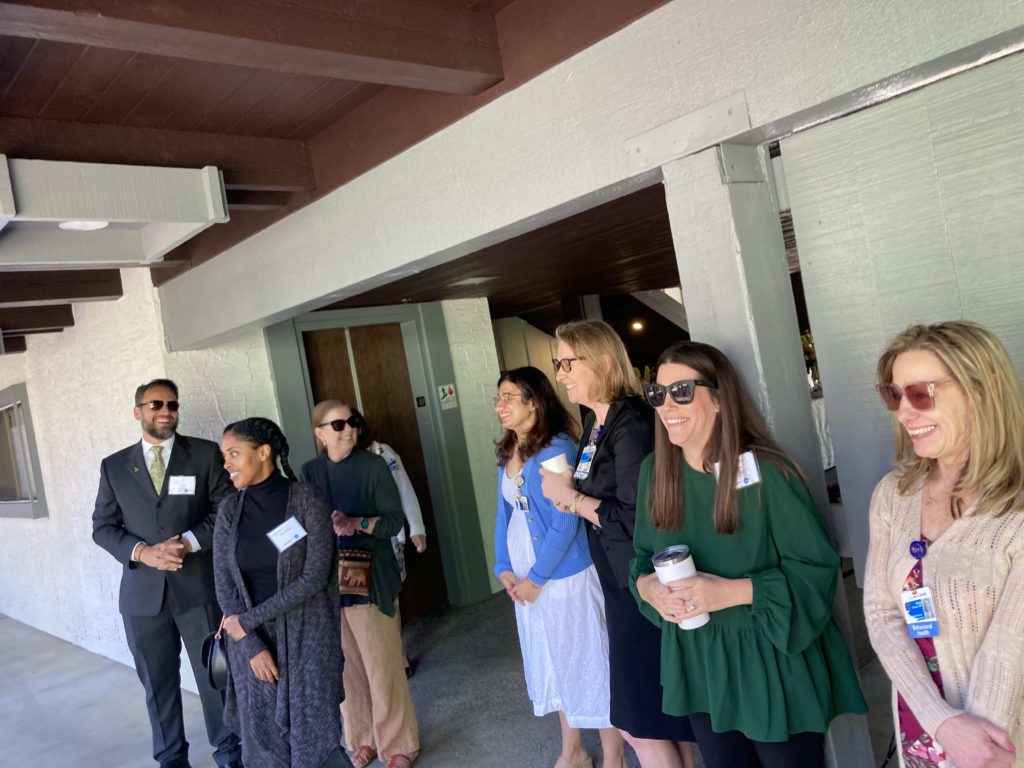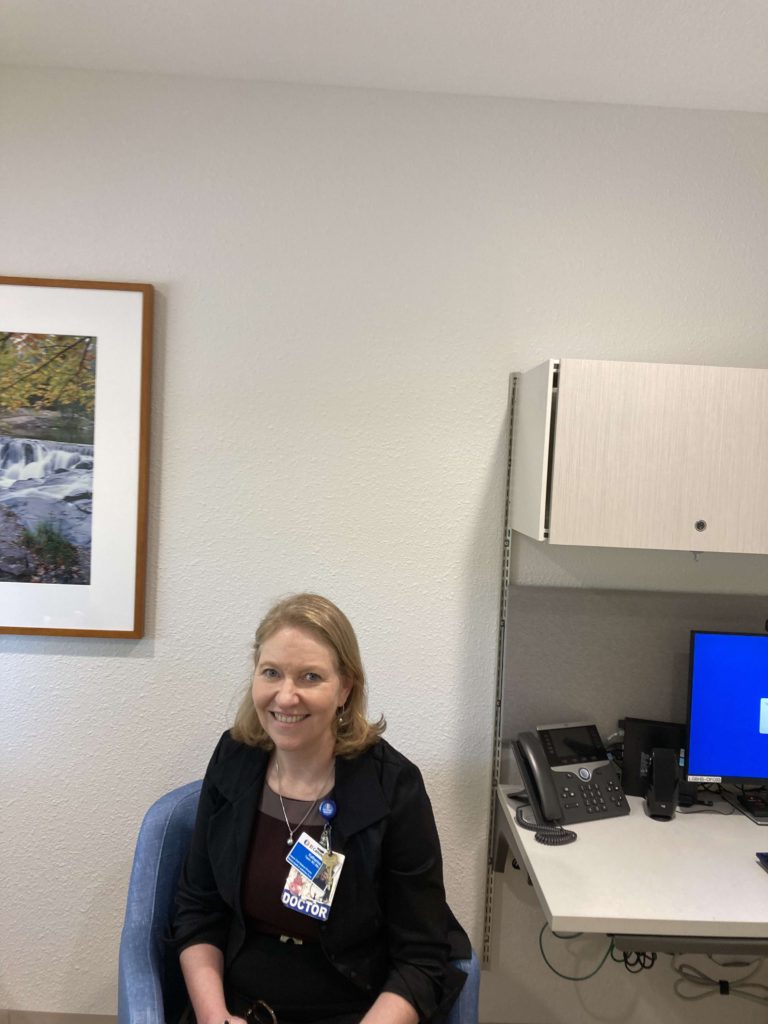
Blended with the soft guitar plucks wafting through the large courtyard of the low-rise Los Gatos building near the border with Campbell, there was plenty of optimism Saturday morning, as El Camino Health unveiled its new intensive outpatient clinic.
As Mayor Mary Badame joined health system officials to cut the ceremonial ribbon for the “ASPIRE” program expansion, much was made about how “dialectical behavior therapy”—the medical approach on which the facility is based—is backed by evidence.
“There’s always a growing need,” said Medical Director of Adolescent and Child Psychiatry Dr. Jennifer Zumarraga, with the nonprofit’s Scrivner Center for Mental Health & Addiction Services, from the podium. “Together, with our partners, we can provide hope.”

Earlier this year, the Santa Mateo County Board of Supervisors declared loneliness a public health crisis.
A systematic review published last year in Cureus, a peer reviewed journal, found “a connection between social media use and adolescent depression.”

A 2021 report from the Little Hoover Commission, an independent State oversight body, found youth struggling with stress, anxiety and trauma in the wake of the Covid-19 pandemic, and noted mental illness is the leading reason for hospitalization among children in California.
The shadow of the Palo Alto suicide clusters from a few years back, which led to a CDC investigation, also colored the picture.
El Camino Health brass say they’ve been deploying a model since 2010 that’s at least a partial answer, one professionals in other jurisdictions have already been learning from.
“It was so successful that other clinics and health systems duplicated it,” former Sunnyvale mayor Julia Miller, who’s been on the El Camino Health Board of Directors for 12 years, told the Los Gatan.
Dialectical behavior therapy (DBT), an integrated form of psychotherapy that uses behavior-changing techniques and teaches Zen Buddhism-related acceptance, was created by University of Washington professor Marsha Linehan following her own mental health battles. It gained widespread acceptance in the 1990s.
Researched published in 2017 in the Indian Journal of Psychological Medicine found DBT is particularly useful in reducing suicide in people with borderline personality disorder, though it questioned the effectiveness on overall personality management and said more studies are needed to determine the extent to which it might outpace other structured therapies.
Maja Nelson, a Burlingame resident, said her own daughter went through the El Camino Health program. She says she’s witnessed how well it works first-hand.
“It saved her life and it transformed our family,” she said, adding she has pledged to spread awareness about DBT. She wants to do everything she can to break the stigma of mental health treatment.
Nelson explained that the way the program works is—in addition to the modules the youth go through—their parents are also taught skills for how to help their children.
She found this particularly helpful, particularly given parents’ inclination to reach for, “Don’t worry about it,” or other dismissive phrases, “—where all they really want you to do is sit with them in the hall…just be with them in that dark space without trying to solve it.”
Dr. Katherine Taylor, the interim chief medical director, said an intensive outpatient program is just what some people need.

“We’re a community hospital,” she said. “We’ve done our best to make it accessible for people.”
Dr. Reena Trivedi, one of the psychiatrists, said the ASPIRE program is an important part of ensuring El Camino Health has a comprehensive and effective continuum of care.
Patients come from 3-6pm, four days a week, she said, noting it initially launched with a high school track, but has grown to accept middle schoolers, and those in early adulthood.
“Now we have the space; we have the manpower; we have the curriculum,” Trivedi said.
Three times a week, for about 20 minutes, parents join their kids to learn right alongside.
Dr. Shreyas Mallur, El Camino Health’s associate chief medical officer, a Los Gatos resident of more than two decades, says local youth have been dealing with significant stressors.
“It’s more acute in Los Gatos and the surrounding areas,” he said. “The pandemic threw everybody off.”
He said he’s confident ASPIRE will be a force to help turn the tide.
“We really want to make sure we support the critical needs of our community,” he said, pointing to the positive results seen with the patients who’ve already gone through the program. “They did get the coping skills.”
*An earlier version of this article had Dr. Shreyas Mallur’s name flipped around.










Could you give us an address for this clinic??????????????????????
The clinic is located at 700 W. Parr Avenue in Los Gatos, California, which is near the border with Campbell.